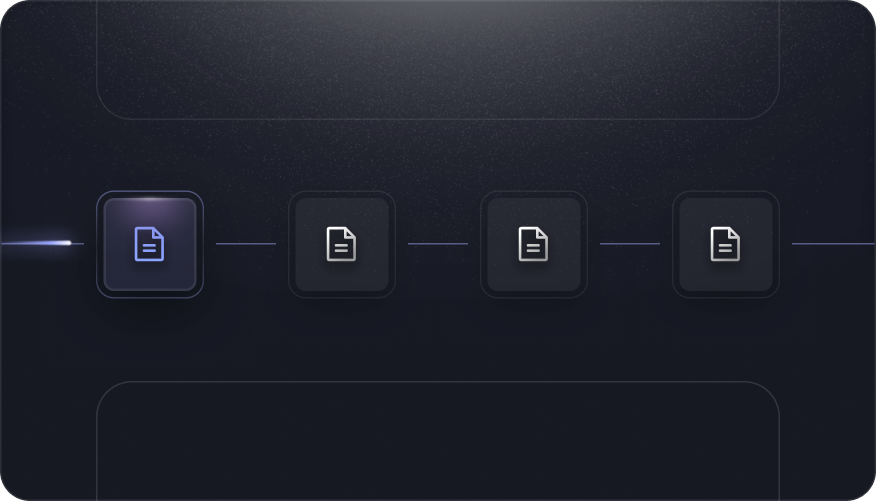



We curate threat intelligence to provide situational awareness and actionable insights
Threat Identifier Detections
Atomic detections that serve as the foundation of our detection framework.
Threat Scenario Detections
Risk, pattern, and sequence-based detections utilizing the outputs of Threat Identifiers as a means of identifying actual threats.
Reports Hot Off the Forge
• Threat News Reports
• Trending Threat Reports
• ResearchArticles


Forge Report: First Half Threat Trends of 2024




All Threat Reports
How they get in: VBS scripts masquerading as legitimate updates
SHADOW#REACTOR is an opportunistic attack chain starting with VBS scripts posing as updates. It escalates to PowerShell execution, pulling payloads disguised as .txt files. Using LOLBins like MSBuild, it maintains stealthy persistence through a cross-language script chain that avoids disk-based binaries and resists static detection.
Campaign Snapshot: How Makob Gets In and Spreads
Makop ransomware primarily enters through exposed RDP using brute-force tools like NLBrute. Once inside, it disables security via BYOVD techniques, escalates privileges with known Windows LPE flaws, steals credentials using Mimikatz and LaZagne, and increasingly delivers payloads through GuLoader-based staged execution.
Legit tools + simple primitives are weaponized everywhere
Threat actors increasingly weaponize trusted macOS tools such as curl, bash, Script Editor, and Terminal to deliver blind, fileless execution that bypasses Gatekeeper. Social engineering and fake installers drive rapid compromise, exemplified by ClickFix campaigns targeting healthcare, finance, government, telecom, and tech with Atomic Stealer and similar payloads.
Supply chain + dev tooling is also a real macOS vector now
Attackers are increasingly compromising macOS systems by poisoning developer tooling—npm packages, build scripts, and CI/CD pipelines. With 73% of developers using macOS, threat actors exploit postinstall scripts, LaunchAgents, and deceptive dev utilities. Campaigns like AdaptixC2 and Shai-Hulud show the growing scale and impact of macOS supply chain compromise.
Systems Trust Controls are under active, repeated attack
macOS systems face a sharp rise in attacks that bypass Gatekeeper, XProtect, and quarantine by manipulating user trust rather than exploiting vulnerabilities. Threat actors abuse AppleScript and social engineering to disable protections, leading to credential theft, crypto loss, and major supply chain risks across cryptocurrency, fintech, government, and technology sectors.
Big-Picture MacOS Threat Climate
DBIR 2024 and M-Trends 2025 highlight a shifting macOS threat landscape dominated by exploits, credential theft, and social engineering. Cross-platform malware families increasingly bypass Apple’s defenses while human error drives most breaches. macOS now mirrors global trends, from vulnerability exploitation to identity compromise and extortion workflows.

About the Forge & Threat Reports
Our mission is to assess the operational behaviors of all threats to provide the community, and our customers, with actionable information and enterprise-ready detections in order to defend themselves in an ever- changing threat landscape.





Intelligence Levels for Threat Reports
Tactical
Detectable threat behaviors for response with threat scenarios or threat identifiers.
Strategic
General information security news, for awareness.

Whitepapers

The World's Best SOC Teams Use Anvilogic
Build Detections You Want, Where You Want











.svg)

.svg)









.svg)

.png)
